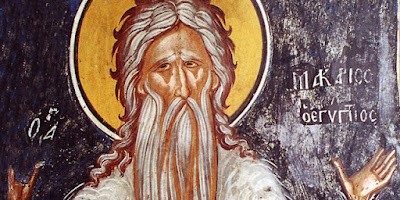5. Why
Orthodox Christians Stand During Divine Services
In performing divine
services will it matter like the saints, Whom the God-inspired prophets Isaiah,
Micah Daniel and St. John the Theologian saw "standing in the heavens next to the throne of God"
(Isaiah 6:2; I Kings 22:19; Daniel 7:10; Apocalypse 7:11), Christians similarly
should not sit during divine services, but stand…READ
FULL ARTICLE
4. When can one sit during Orthodox Services?
At the apostolic times,
especially in the catacomb Church, the Divine services were completely
different from the services we may attend today. Over time, different
texts were added to the services. They were rearranged and transformed. Time passed,
and the services got their final form and content, which was due to the
influence of several factors such as the introduction of the Psalter and
liturgical texts written by St. John of Damascus, St. Ephraim of Syria, St.
Basil the Great, St. John Chrysostom, St. Grigory the Theologian, St. Grigory
of Nyssa and others…READ
FULL ARTICLE
3. Instructions of Blessed Macarius the Great
Saint Macarius lived in
Egypt during the years 301-391. As a youth he tended to flocks of sheep and
lived in seclusion. Isolation. At 30 years of age, he withdrew to a distant
desert. For his meekness and humility he was ordained as a presbyter. He left
behind him works of a moral character that contained important meaning for both
the monastics and for all Christians. The contents of his instructions are: The
bright condition of the first person at the beginning and the gloomy state
after the sinful fall…READ
FULL ARTICLE
2. The Protector of Children
Saint Stylianos was born
in Paphlagonia, Asia Minor, between 400 and 500. He was blessed even from his
mother’s womb. As he grew up, by the grace of God he increasingly became a
dwelling-place of the Holy Spirit. From childhood he displayed the rare
qualities of his blessed life. When he was young and still an adolescent,
although, of course, he was of the flesh, he never allowed desires to pollute
his spirit and soul. He was very pure. Nor did he allow any earthly passion to
dominate him. He would not permit riches and the love of wealth to permeate his
soul and subject him to corruption and perdition…READ
FULL ARTICLE
1. On the Modesty of Women in the Orthodox Church
It seems that more and
more often we see young women standing in church who, contrary to the explicit
teachings and traditions of the Orthodox Church, are wearing immodest clothing,
lipstick and no head coverings. At the St. Herman's youth conference last year,
for instance, the clothing many of the young women were wearing was bordering
on skin tight, and it seemed that only about half the young women had scarves
or hats on…READ
FULL ARTICLE
 |
| Help support the ministry of St. Elisabeth Convent |





















CONVERSATION